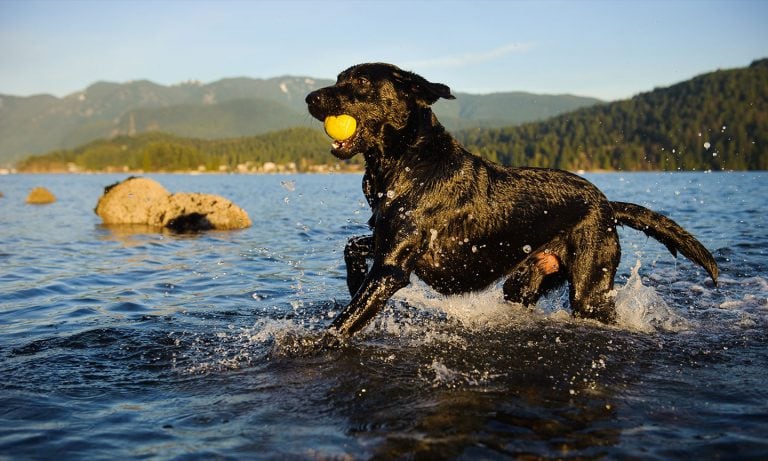Bullmastiff vs Labrador Retriever

Breed Snapshot
Best For
Bullmastiffs, powerful and loyal, thrive on consistent training with their favorite person: you. These devoted and gentle giants are ideal for pet parents with plenty of space and time for training—and plenty of love...
Bullmastiffs, powerful and loyal, thrive on consistent training with their favorite person: you. These devoted and gentle giants are ideal for pet parents with plenty of space and time for training—and plenty of love to give.
Bullmastiff Temperament
Bullmastiffs are affectionate, happy-go-lucky dogs who form deep bonds with their humans and are faithful companions. A cross between the easy-going Old English Mastiff and the courageous Bulldog, the Bullmastiff dog is the perfect combination of their traits. This big softie isn’t much of a barker. They were bred to spot, trac...
Bullmastiffs are affectionate, happy-go-lucky dogs who form deep bonds with their humans and are faithful companions. A cross between the easy-going Old English Mastiff and the courageous Bulldog, the Bullmastiff dog is the perfect combination of their traits.
This big softie isn’t much of a barker. They were bred to spot, track and pin down poachers, and they had to be silent to achieve this mission—truly, they are the ninjas of the dog world. You wouldn’t know they were around, except they’re usually leaning against your leg or trying to fold themselves into your lap. (Wherever you are is their favorite place to be.) And don’t even think of leaving them outside on their own. They’ll be at the back door waiting for you to let them in.
Bullmastiffs are not really aggressive, nor are they known for biting (even though they have a powerful bite force). Like most working breeds, they are confident and self-assured, but can be wary of strangers. So, start training your Bullmastiff puppy early to help get them used to having visitors in your home.
Because they are large dogs who often think they are toy-sized, they can be a bit clumsy around small children, cats and smaller dogs. So, be sure to keep an eye out when your Bullmastiff dog is around anyone smaller than them, and teach children how to interact responsibly with dogs.
Bullmastiff Traits

Breed Snapshot
Best For
The Labrador Retriever is one of the most popular dog breeds in America, known for their friendliness, intelligence and outgoing nature. These high-energy, athletic dogs require ample exercise and thrive in active households.
Labrador Retriever Temperament
Cheerful and animated, this large dog breed has stamina and energy to spare, able to keep up with your family and all your activities. You’ll want to funnel that energy into positive outlets, like outdoor activities and training. And thanks to their high intelligence, learning commands and tricks com...
Cheerful and animated, this large dog breed has stamina and energy to spare, able to keep up with your family and all your activities. You’ll want to funnel that energy into positive outlets, like outdoor activities and training. And thanks to their high intelligence, learning commands and tricks come relativity easy for them. Labrador dogs love having a job to do and excel at things like agility courses and, just like their name implies, retrieving items. In fact, their superior intelligence is why they often make great assistance dogs, working as therapy or service animals.
A people-pleaser, Labrador Retrievers have a pleasant personality and love interacting with humans. Get ready to be showered with lots of affection! They also easily make friends with dogs and other animals, including cats, although not all cats are as excited to meet them as they are—a Lab’s large size and high energy level can be a bit intimidating. Slow and controlled introductions to other family pets will help make the transition go smoothly. Considering the staying power of the Labrador dog breed’s popularity, it’s a safe bet your Lab will fit right in with the all the loved ones you choose to introduce into their life.
While they’re generally good-natured, like any dog breed, Labs may develop aggressive tendencies if they don’t receive proper training or have experienced abuse. Addressing any biting issues early on, providing proper socialization when they are puppies (aka safely exposing them to lots of new people, places and things) and working with a professional dog trainer can help avoid behavioral issues when they get older.




